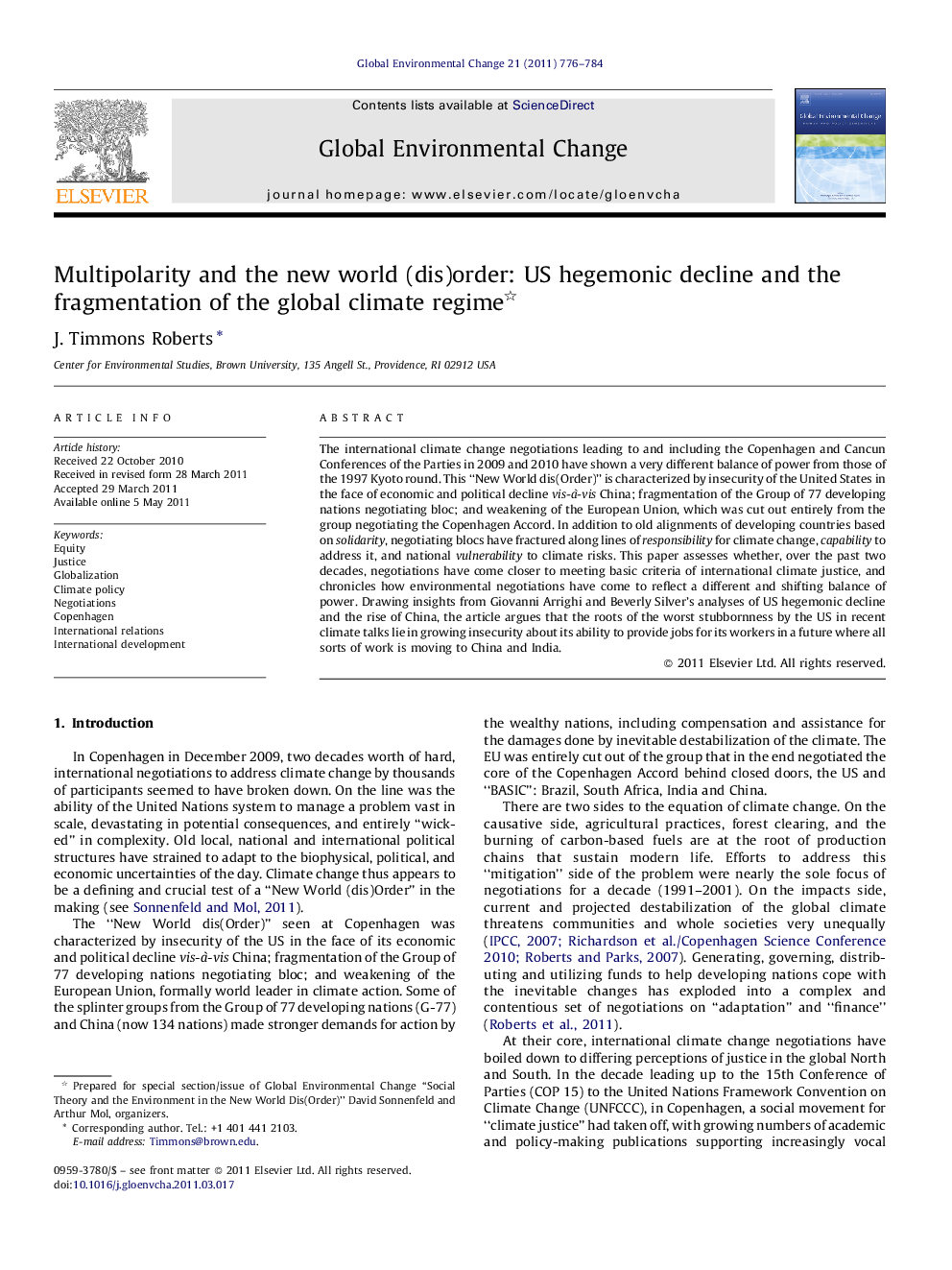| کد مقاله | کد نشریه | سال انتشار | مقاله انگلیسی | نسخه تمام متن |
|---|---|---|---|---|
| 1054721 | 946853 | 2011 | 9 صفحه PDF | دانلود رایگان |

The international climate change negotiations leading to and including the Copenhagen and Cancun Conferences of the Parties in 2009 and 2010 have shown a very different balance of power from those of the 1997 Kyoto round. This “New World dis(Order)” is characterized by insecurity of the United States in the face of economic and political decline vis-à-vis China; fragmentation of the Group of 77 developing nations negotiating bloc; and weakening of the European Union, which was cut out entirely from the group negotiating the Copenhagen Accord. In addition to old alignments of developing countries based on solidarity, negotiating blocs have fractured along lines of responsibility for climate change, capability to address it, and national vulnerability to climate risks. This paper assesses whether, over the past two decades, negotiations have come closer to meeting basic criteria of international climate justice, and chronicles how environmental negotiations have come to reflect a different and shifting balance of power. Drawing insights from Giovanni Arrighi and Beverly Silver's analyses of US hegemonic decline and the rise of China, the article argues that the roots of the worst stubbornness by the US in recent climate talks lie in growing insecurity about its ability to provide jobs for its workers in a future where all sorts of work is moving to China and India.
► Copenhagen made clear that the climate negotiations are deadlocked due to deep divisions and restructuring in the global economic system.
► The United States resists any obligations to reduce emissions because it fears job loss to China and India.
► The Group of 77 developing countries is fragmenting into many new negotiating blocs.
► Old alignments based on solidarity, responsibility and capability and new ones based on vulnerability to climate risks must be understood and addressed to advance the negotiations.
Journal: Global Environmental Change - Volume 21, Issue 3, August 2011, Pages 776–784